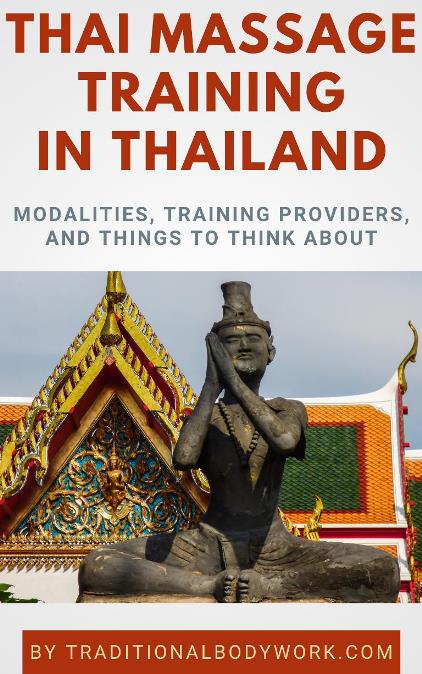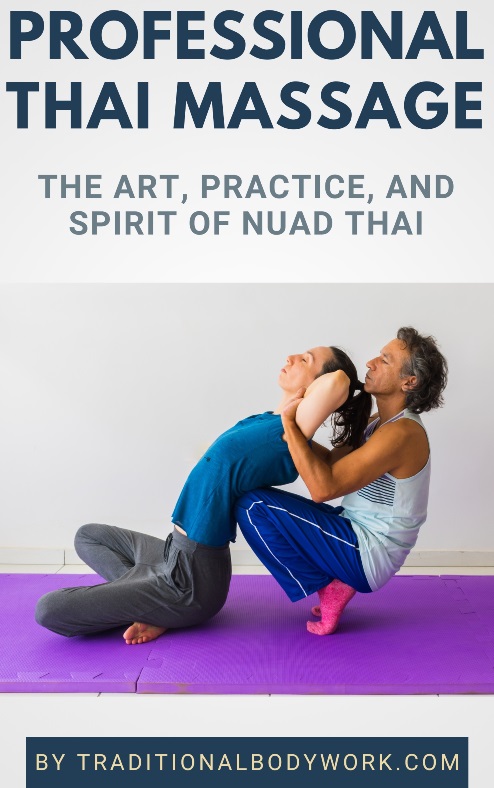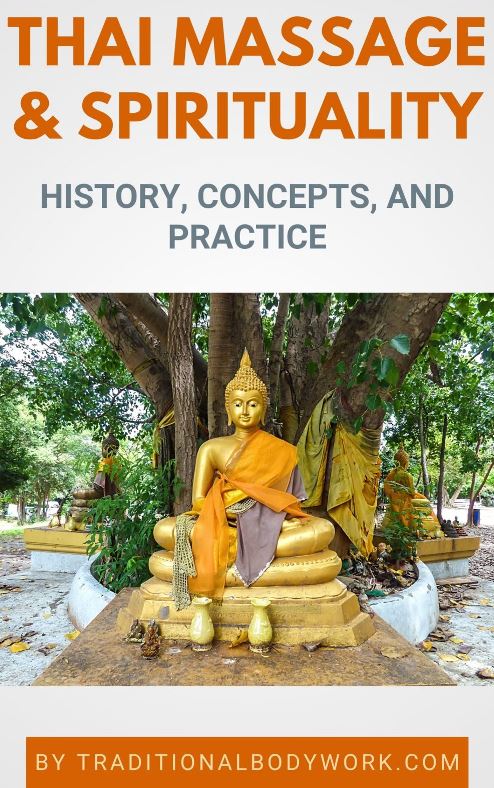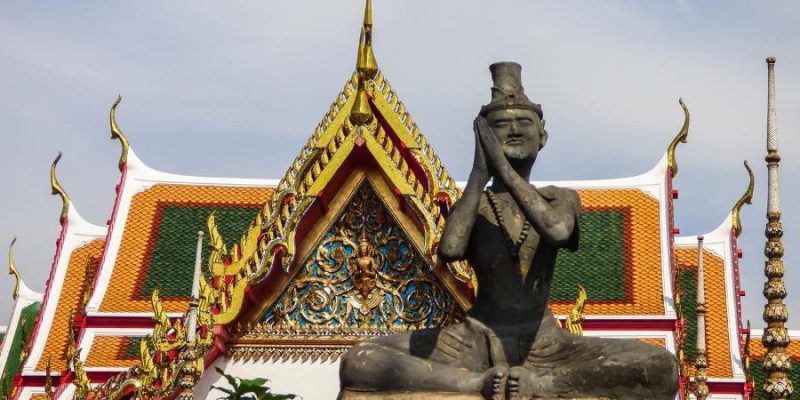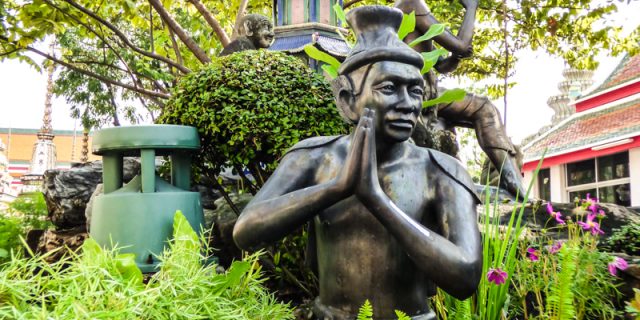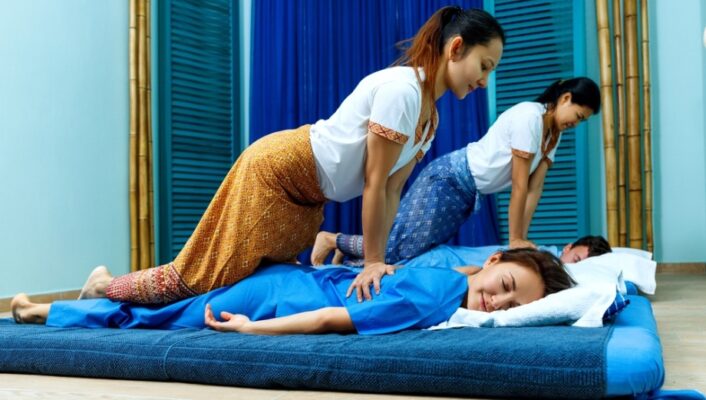
Thailand has a very rich tradition and culture, and it’s without any doubt an intriguing and extremely interesting country and holiday destination. Nevertheless, Thailand is also a country of appearances. In general, for the Thai people, things need to look good, and it’s less important if they really are good.
Perhaps “doing business” is not invented in Thailand, but the Thai clearly know their way with it. As “appearance” is an important part of marketing and advertising, it fits well with the Thai mind-set and of course also with the Thai Massage school business.
In this article we’ll talk about 5 common issues that may arise when taking a Thai Massage course in Thailand. As the expression goes, forewarned is forearmed…
1. Famous Thai Massage Teachers
You might be inclined to go study with a famous Thai Massage teacher or Master, but a point of attention should be made here: if renown or famous teachers run medium-sized or large Thai massage schools, it will be very unlikely you will ever get some direct hands-on instruction from them.
Sure, on the school website you will see many pictures, transcripts or videos from the Guru, but usually, you will get the training from one of the other teachers of the school (which doesn’t mean it will be an incompetent teacher, by the way). Now, if you’re lucky you will see the real Master on the day of your graduation massage session or when you receive your course certificate.
Thus, if you really want to receive training from the Big Master, inquire if or when there are courses or workshops given by him or her, before you enroll.
2. Accreditation and Certification
You might have noticed that many Thai Massage schools proudly advertise with their Thai Ministry of Public Health, Ministry of Education, TTMS or UTTS accreditations and certifications, but there are in fact just a handful of schools in Thailand where course completion certificates have professional or legal value in your own country.
So, if you need or want so-called Continuing Education Units or Points being valid in your home country, or if you want to practice professionally at home, inquire well before enrolling with a certain Thai Massage school or course.
3. The Language Thing
The Thai generally don’t speak foreign languages that well, and English is really one of their weak points. They also have a hard time with “losing face” so they will get irritable if you show that you don’t understand them. Worse even, they will most likely pretend that they do understand your question and answer you ‘something’ or offer you a service you didn’t ask for.
Remember that appearances are super important in Thailand and it’s simply not done for a Thai to admit that he or she doesn’t grasp what you ask or say. As said… firstly, that would mean “losing face,” and secondly it’s simply considered impolite by the Thai not to be able to understand (or respond).
On their websites, the Thai schools often claim to speak English (“Our Thai Massage Courses are given in English…”), but it would be wise to first test their actual level of English (by e-mail, phone or face-to-face) if you are the type that learns best by support of verbal explanations.
Japanese and Chinese students might be more lucky, because their languages are usually better mastered by the Thai than English. In any case, the Chinese and Japanese culture match better with the Thai than Western cultures, but even within Asia there are certainly very important differences.
4. The Course Curriculum
Beware of fully stuffed Thai Massage course curricula promising you proficiency of 150 or 200 poses, positions and massage techniques in a 5-day course. It’s just not possible to master that number of new movements and info. It will simply mean that the teacher will very quickly go through the massage sequence and you’ll have very little time to master any of that, or even ask more in-depth questions.
Apart from the large amount of techniques, short courses sometimes promise to share a whole lot of extra stuff like Sen Energy Line knowledge, Thai Massage history, knowledge of precautions and contra-indications, work space set-up, anatomy, and so on.
Really, in just 5 days you can not do so much and it’s certainly better to have a course that offers less techniques, but makes time for you to learn well that what is taught.
5. Course Duration and Qualification
Too many Thai Massage training centers in Thailand claim that you’ll be a qualified Thai massage practitioner after having taken their course and that you’ll be able to open your own business in your home country and make… money.
Now, you will certainly NOT be qualified after a 5-day (30 hours) or 10-day (60 hours) course. Even in Thailand, the Thai officially need 150 hours of studies before they are allowed to open a Thai Massage establishment, but in reality it takes much more than that to become confident and qualified to really give responsible Thai Massage sessions.
Personally, I advise to repeat a decent so-called beginner course a minimum of 4 to 5 times, which would give you both the confidence of doing the Thai Massage techniques accurately and the time to practice a lot. Even after that, it’s crucial to keep on studying and at the same time work with many different sorts of people, heavy, light, thin, over-sized, tall, small, sportive, men, women, children, stiff, flexible, handicapped, and so on.


